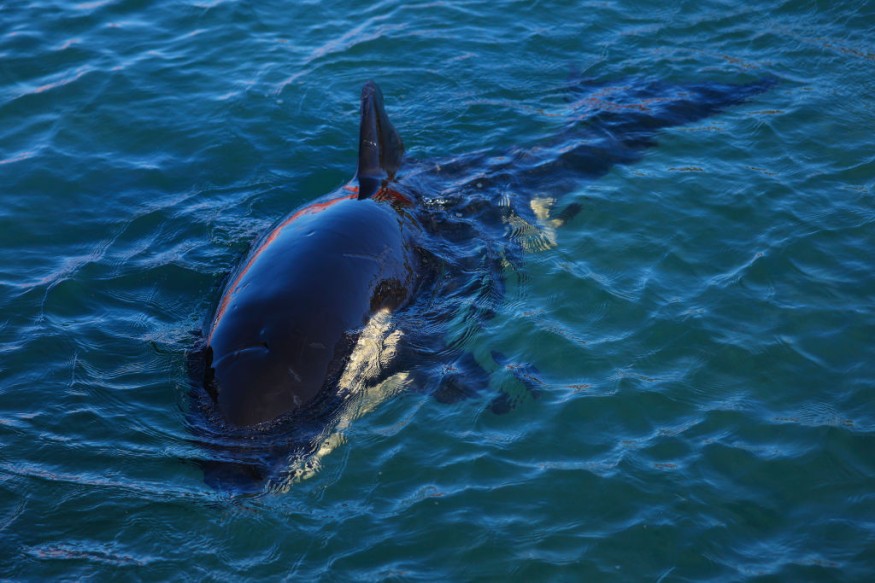A pod of orcas is claimed to have ripped to bits a great white shark that washed up dead on an Australian beach.
A torn-up great white shark body washed up at Cape Bridgewater on Victoria's south coast, fueling conjecture that orcas attacked it to feed on its liver--a first in these waters.

Attack Of Orcas
Residents discovered the disemboweled 10-foot-long (3-meter) shark some 200 miles (320 kilometers) west of Melbourne in the state of Victoria.
Witnesses and academics believe orcas pulled the great white shark (Carcharodon carcharias) apart because nothing but its head and tail remained.
"I have never seen anything like that before," said Ben Johnstone, a local fisher and manager of the bait shop Portland Bait and Tackle who received a tip-off and went to inspect the carcass on Oct. 17. "The only other creature that could've caused it would be an even bigger white shark."
Nature photographer Allen McCauley had also witnessed a pod of killer whales circling in the bay two days prior to the incident.
Orcas (Orcinus orca), also known as killer whales but belonging to the dolphin family, have previously attacked great white sharks.
However, most examples have been limited to the waters off the coast of South Africa, where two orcas known as Port and Starboard have been dining on shark livers for several years.
Great White Shark's Liver
Lauren Meyer, a trophic ecologist at Flinders University in Adelaide, believes the orcas attacked the shark to get at its liver, a behavior witnessed on rare occasions in other regions of the world.
Orcas have attacked great white sharks nine times in South Africa and the United States. The orcas will pursue the sharks and carefully extract their livers, which are among the fattiest portions of the body, leaving the remainder of the carcass.
Great white shark livers are also high in vitamins, making them a nutritious food for orcas.
Meyer said that they certainly see that orcas prefer the liver of white sharks, mako sharks, bronze whalers and sevengills, and even tiger sharks.
Meyer further noted that orcas also like to eat the intestines of sunfish, which is really strange, and dugong intestines.
Dr. Meyer and the Flinders University research team were part of an international team that created a database on shark and killer whale interactions in order to "unpack" what was going on around the world.
Experts will continue to investigate the incident, looking at the rake marks and leftover DNA, including saliva.
Alison Towner, a shark researcher at Rhodes University in Makhanda, South Africa, clarified that not all killer whales had this behavior. Some only eat tuna, while others eat mammals, depending on the social teachings of the pod.
This behavior has an effect on local ecosystems. Great white sharks and bronze whaler sharks have been recorded avoiding places where orcas congregate, leaving a gulf at the top of the food chain at several sites off the coast of South Africa.
"In certain areas like South Africa, the absence of white sharks due to displacement by killer whales has increased competition among Cape fur seals and critically endangered African penguins for small pelagic fish," said Towner.
Related Video:
© 2025 NatureWorldNews.com All rights reserved. Do not reproduce without permission.





